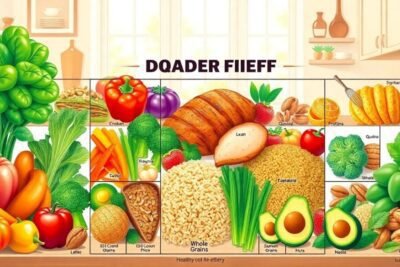
How to lower blood pressure quickly in an emergency
High blood pressure can be a serious health concern, especially during emergencies. Knowing how to lower blood pressure quickly in an emergency can potentially save lives. This article outlines various methods to manage blood pressure effectively and the critical steps to take when faced with a hypertensive crisis.
- What is a hypertensive crisis?
- How to lower blood pressure instantly?
- When to call 911 about high blood pressure?
- What are the symptoms of a hypertensive crisis?
- How do lifestyle changes help in managing blood pressure?
- What foods can help lower blood pressure quickly?
- What emergency treatments are available for high blood pressure?
- Related questions about managing blood pressure effectively
What is a hypertensive crisis?
A hypertensive crisis occurs when blood pressure readings reach 180/120 mm Hg or higher. This condition can manifest with or without noticeable symptoms. If an individual does not exhibit symptoms, it may be safe to wait five minutes and then recheck blood pressure using at-home methods.
Typically, a hypertensive crisis is classified into two categories: hypertensive urgency and hypertensive emergency. In urgency, blood pressure is high, but there are no acute symptoms of organ damage. In contrast, an emergency presents with symptoms that could indicate life-threatening conditions, necessitating immediate medical attention.
Factors such as stress, medications, and even dietary choices can trigger a hypertensive crisis. Recognizing the difference between these scenarios is crucial for taking appropriate action.
How to lower blood pressure instantly?
When looking for ways to lower blood pressure instantly, consider a few effective techniques. Some of these include:
- Deep breathing exercises: Taking slow, deep breaths can help reduce anxiety and lower blood pressure.
- Hydration: Drinking water can help by diluting sodium levels in the body.
- Cold showers or baths: These can help relax blood vessels and lower blood pressure.
These techniques are meant to provide immediate relief but should not replace medical treatment if symptoms persist. Often, individuals should monitor their blood pressure closely after applying these methods.
In cases where home remedies do not suffice, seeking professional medical care is essential. Medical professionals can administer medication to lower blood pressure effectively, particularly in emergencies.
When to call 911 about high blood pressure?
It is vital to know when to seek emergency assistance. Call 911 if you or someone else experiences symptoms such as:
- Severe headache
- Chest pain
- Vision changes
- Shortness of breath
- Weakness or numbness
These symptoms may indicate a hypertensive emergency that could lead to complications like stroke or heart attack. Timely intervention can make a difference, so it is better to err on the side of caution.
What are the symptoms of a hypertensive crisis?
Recognizing the symptoms of a hypertensive crisis is crucial for prompt action. Some common symptoms include:
- Severe headache
- Nausea or vomiting
- Confusion or altered mental state
- Chest pain or pressure
- Shortness of breath
If any of these symptoms occur alongside elevated blood pressure, it is essential to seek medical attention immediately. Symptoms can vary from person to person, so remaining vigilant about changes in your health is important.
How do lifestyle changes help in managing blood pressure?
Making positive lifestyle changes can significantly impact blood pressure management. Here are some effective strategies:
- Healthy diet: Consuming a diet rich in fruits, vegetables, and whole grains while limiting sodium can help in maintaining healthy blood pressure levels.
- Regular physical activity: Engaging in at least 150 minutes of moderate exercise weekly can lower blood pressure.
- Weight management: Maintaining a healthy weight reduces the strain on the heart and lowers blood pressure.
Incorporating these lifestyle changes can lead to better overall health and long-term blood pressure control. Additionally, quitting smoking and limiting alcohol intake are vital in managing hypertension.
What foods can help lower blood pressure quickly?
Certain foods can act as natural remedies for lowering blood pressure. Some beneficial options include:
- Leafy greens: Spinach and kale are rich in potassium, which helps balance sodium levels.
- Berries: Blueberries and strawberries contain antioxidants that improve heart health.
- Beets: Beets are high in nitrates, which can help relax blood vessels and lower blood pressure.
Incorporating these foods into your diet can offer a natural approach to managing blood pressure. Consistency is key, and making these foods a regular part of your meals can yield positive results over time.
What emergency treatments are available for high blood pressure?
In an emergency room setting, various treatments are available for high blood pressure. The medical team may administer intravenous medications to quickly reduce blood pressure levels. Commonly used medications include:
- Beta-blockers
- Diuretics
- ACE inhibitors
The exact treatment will depend on the individual's condition and the presence of any organ damage. If stabilized, patients may return home with prescribed medications and guidelines for managing their blood pressure effectively.
In severe cases, such as aortic dissection or preeclampsia, patients may require intensive care and closer monitoring to ensure their safety. It is vital to follow up with healthcare providers to adjust treatment plans and avoid future crises.
How can I get my blood pressure down right now?
To lower blood pressure immediately, consider using deep breathing techniques, staying hydrated, or taking a moment to relax. These quick methods can help reduce stress and lower blood pressure temporarily. However, if symptoms persist or worsen, seeking medical advice is crucial.
How can I bring my blood pressure down urgently?
In urgent situations, consider methods such as cold compresses to the back of the neck, staying calm, and avoiding caffeine and nicotine. These steps can help lower blood pressure levels quickly. If symptoms of a hypertensive crisis are present, do not hesitate to call for emergency assistance.
What brings blood pressure down the fastest?
The fastest way to lower blood pressure usually involves medications administered by healthcare professionals in an emergency setting. However, practicing relaxation techniques and staying hydrated can also provide temporary relief in less severe situations.
What is the 60 second trick to lower blood pressure?
A quick method for lowering blood pressure involves taking a moment for deep breathing. Inhale deeply through your nose, hold for a few seconds, and exhale slowly through your mouth. This practice can help calm the body and reduce blood pressure quickly.
For further information on managing blood pressure, check out this informative video:










